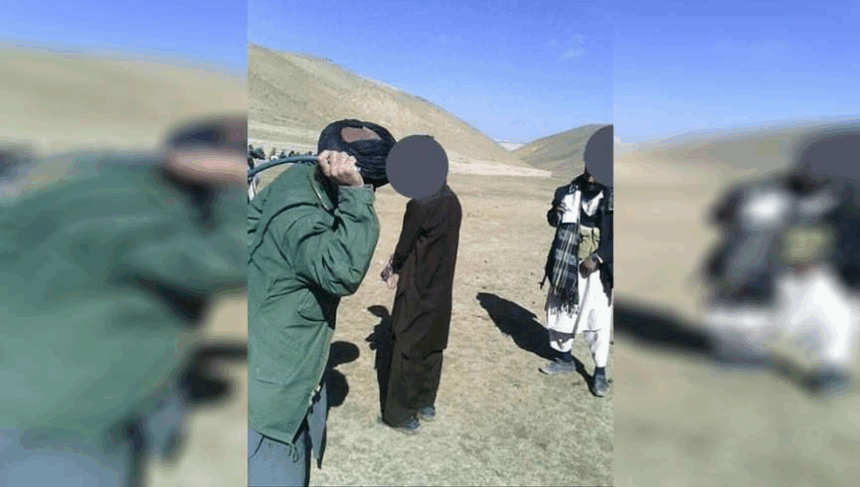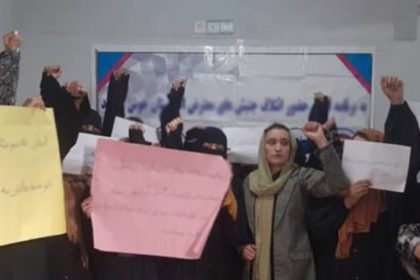RASC News Agency: The Taliban’s so-called Supreme Court has announced that its provincial courts in Sar-e-Pul and Laghman carried out the public flogging of 24 individuals, among them five women, over allegations as trivial as “running away from home,” “phone conversations,” and “physical altercations.” According to the Taliban’s statement, the mass punishment took place on Wednesday, August 22. In Sar-e-Pul’s Gosfandi district, 21 people including four women were sentenced to eight months to three years in prison and 25 to 39 lashes administered in full public view. In Laghman’s Alishang district, three others, including one woman, were condemned to one to one-and-a-half years in prison and 30 to 39 lashes before a crowd.
This grim spectacle forms part of a widening wave of medieval punishments that the Taliban has intensified in recent months. Merely a day before, 16 people in Kabul and three more in Khost and Paktia provinces were also lashed in public squares, their humiliation staged for the regime’s display of control. Figures released by the Taliban itself show that in just the past month, the group has subjected more than 100 men and women across Afghanistan to similar public lashings. These acts come despite repeated and urgent appeals from international human rights organizations, who have condemned such punishments as degrading, inhumane, and a blatant violation of international law.
The Taliban, however, continues to justify these acts under the guise of “implementing Islamic Sharia,” twisting religious interpretation into an instrument of raw political power. In reality, these spectacles of violence serve not justice, but the regime’s authoritarian project silencing dissent, intimidating communities, and stripping away the last vestiges of personal liberty. For women, the danger is even more acute. Under Taliban rule, they face not only exclusion from public life, education, and work but also a judicial system that targets them disproportionately, subjects them to public humiliation, and denies them the right to legal defense. The public lashings of women for “moral” charges often based on nothing more than suspicion are a chilling example of the regime’s systemic gender persecution.
In dismantling Afghanistan’s independent judiciary, eliminating due process, and replacing the rule of law with brute force, the Taliban has created an environment where justice is arbitrary, cruelty is institutionalized, and fear is the primary tool of governance. Each public flogging becomes a propaganda event a message to the people that resistance will be crushed not only physically but also in spirit. The international community is left with a stark choice: to continue issuing statements while the Taliban normalizes such horrors, or to take concrete measures that deny this regime legitimacy, resources, and impunity. Without decisive action, Afghanistan risks sinking further into a theocratic police state where every street corner becomes a stage for the public degradation of its citizens.






